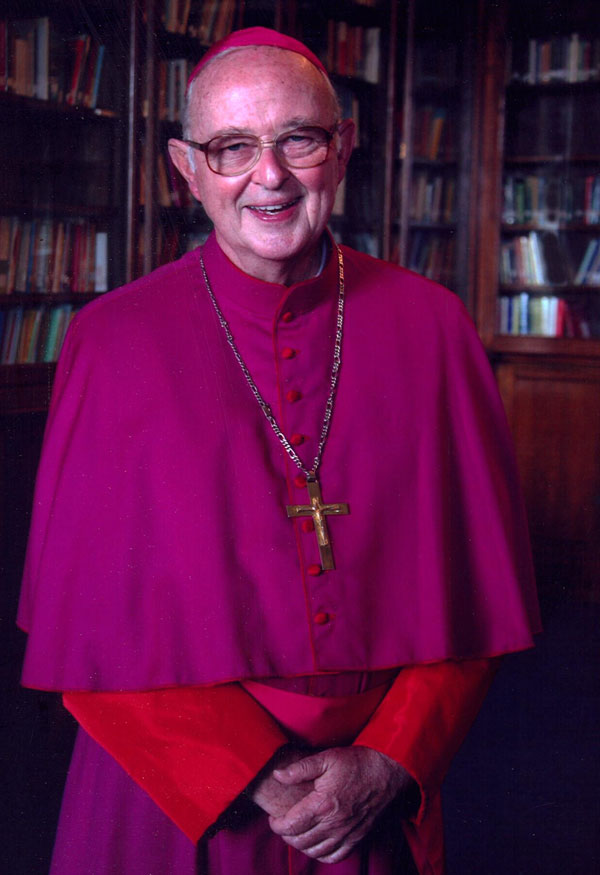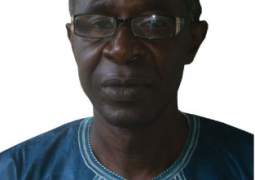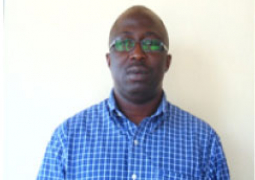
1. At a recent meeting of the Gambia Christian Council, I became aware of a request which came from the Ministry of Youth and Sports concerning challenges and influences which impinge on Gambian youth today. It was addressed to the Christian Churches as well as the Supreme Islamic Council and other pertinent partners. The request invites us to work together in order ‘to begin a holistic campaign to address the seemingly eroding cultural values and norms of our youth as increasingly manifested in their attitudinal comportment’. Put in another way, a concerted effort is called for to attempt to create a conducive environment where a cultured and enterprising youth can be nurtured and fulfilled.
This initiative is a very constructive move on the part of the Ministry for Youth and Sports in The Gambia. It throws out a challenge to all Religious leaders to offer their specific contribution by collaborating with the State in its concern for the young people of this country and therefore also for the future of society here in The Gambia. This appeal acknowledges the fact that youth today (and not just in The Gambia) have to contend with various influences and constraints which have emerged over the last decade or two such as the influence of a foreign media with its secular or a-religious message.
2. As head of the Catholic Church in The Gambia, I would like to take this this opportunity to remind all members of our Catholic community of the coincidental nature of this request at this particular moment in our Church. Just a few months ago, we commemorated the 50th anniversary of one of the most significant Councils in the history of our Church - called Vatican II. The story behind the origins of this Council is quite spectacular. It was convoked by Blessed Pope John XXIII less than a year after his election as an elderly Pope at the age of 78. It seems that The Cardinals at that time agreed to choose an interim candidate as Pope who would guide the bark of Peter on a safe course until such time as they could
agree on a more permanent successor to the late Pope Pius XII. However, things did not work out as planned. There have been moments in the life of our Church when the Holy Spirit intervened over and against the ways of man. For when Pope John XXIII summoned this Council to the total surprise of most Catholics around the world and especially the Cardinals who were thinking otherwise, it calls to mind words that Jesus once spoke to Nicodemus: The Spirit blows where it wills and you cannot tell where it comes from and where it is going.
3. And so it was on the 25th January 1959, just 90 days after his election as Pope, the 79 year old Pontiff announced his plans to convoke a 2nd Council of the Vatican. And he did so, on the Feast of the Conversion of St. Paul in the Basilica of St. Paul outside the Walls in Rome. The timing was just perfect as was the symbolism: that we would learn to acknowledge our Church to be a Church that is both holy and sinful and therefore constantly in need of conversion.
Later on, on the occasion of the opening of the first session of this Council in October 1962, Pope John presented two central themes that would guide the discussions of the 2,400 or so Bishops from all over the world. The first of these was: that the Council should be a pastoral Council i.e. one that would focus more on people with their hopes, their fears, their hurts, their questions and their needs (both spiritual and material) - rather than a Council focused on teaching and doctrines. The opening sentence of the Pastoral Constitution on the Church in the Modern World aptly highlighted this guideline as follows: ‘The joys and the hopes, the sorrows and the anxieties of the men of this age, especially the poor and the afflicted, these too are the joys and the hopes, the sorrows and the anxieties of the followers of Christ.’ In other words, we are all travelling in the same boat (albeit in different classes). In fact, this document was the last document of the Council to be approved three years later. By then, Blessed Pope John XXIII had passed on to his Creator in June 1963. His pontificate lasted less than five years! But his spirit continues to live in our midst. And today, he is already on the way to being canonized.
4. The second basic guideline was: that the Council would be an ‘ecumenical Council’. The word ‘ecumenical’ comes from a Greek word meaning ‘the whole world’. Pope John spoke about the need to open the doors and windows of the Church to the whole human family so that the Church could share with it the light of Christ and his Gospel message. It was his intention that this document in particular would be addressed not only to the followers of Christ but also ‘to all men and women of goodwill’. Just as Christ came into this world to save and not to condemn, to serve and not to be served, so also the Church now wishes to put itself consciously at the service of the family of mankind. Above all, he spoke of the universal need of what he called ‘the medicine of mercy’.
5. And so today, our Church is still trying to digest and implement the spirit and the heritage bestowed on us by Blessed Pope John. We are called to reach out in a sense of solidarity with and to the entire human family by engaging with it in conversation about the deeper questions of life that confront us all. As creatures, we experience our limitations in so many ways; at the same time, we also feel called to a higher life. What can we offer to society; what can we expect from society? What is our ultimate destiny?
Dialogue is never easy. But the efforts which we try to make by listening with respect to each other are never a waste of time. Even if we cannot agree, we can still agree to disagree. This is not a matter of playing games.
In the light of the above social teaching of our Church along with the invitation from the Ministry of Youth and Sports which I referred to at the beginning of this message, we are faced with a golden opportunity for collaboration between a faith based organization and the State in an enterprise that is truly worthy of a positive response and of our attention.
It is noteworthy how in Europe today powerful lobbies would like to exclude or even delete the role of religion from any level of ‘interference’ in matters pertaining to the State – as if every man, woman and child has neither a soul nor a heart nor a spirit. Wherever God is excluded from all aspects of our daily lives, then man becomes a wolf to man (‘homo homini lupus’).
How fortunate we are to live in a society where faith in God is a natural element of our daily lives. Our National Anthem witnesses to this gift of God:
For The Gambia, our homeland, We strive and work and pray;
That all may live in unity, Freedom and peace each day.
Let justice guide our actions, Towards the common good;
And join our diverse peoples, To prove man’s brotherhood.
We pledge our firm allegiance, Our promise we renew;
Keep us great God of nations, To The Gambia ever true’.
May the New Year 2013 help us to live in hope, to forgive each other, and to dream of a better world where we can live in peace and freedom.
Read Other Articles In Article (Archive)



